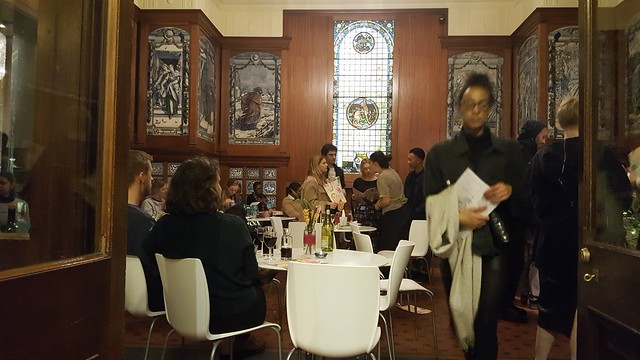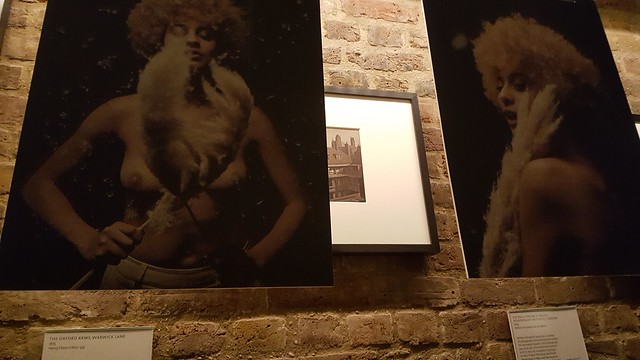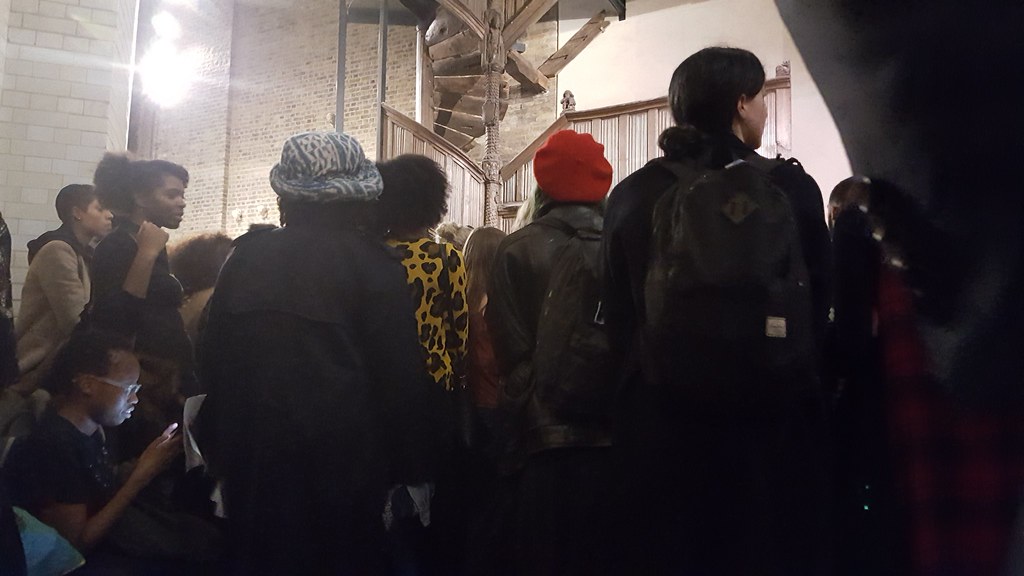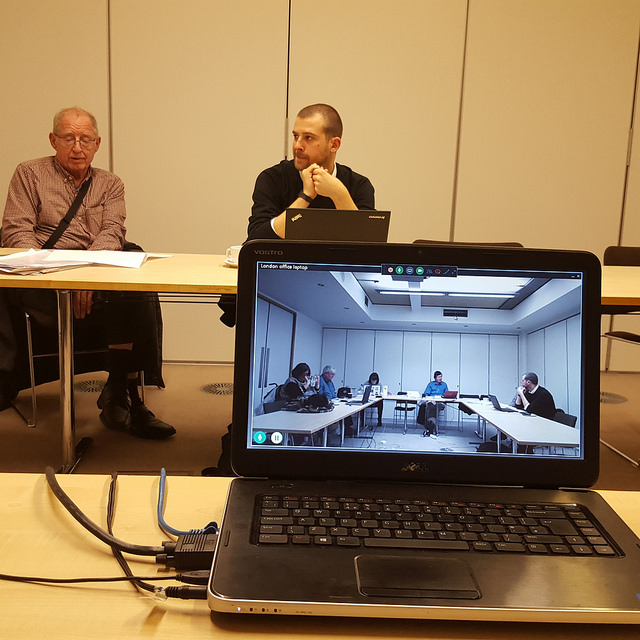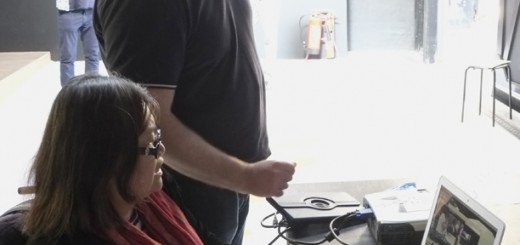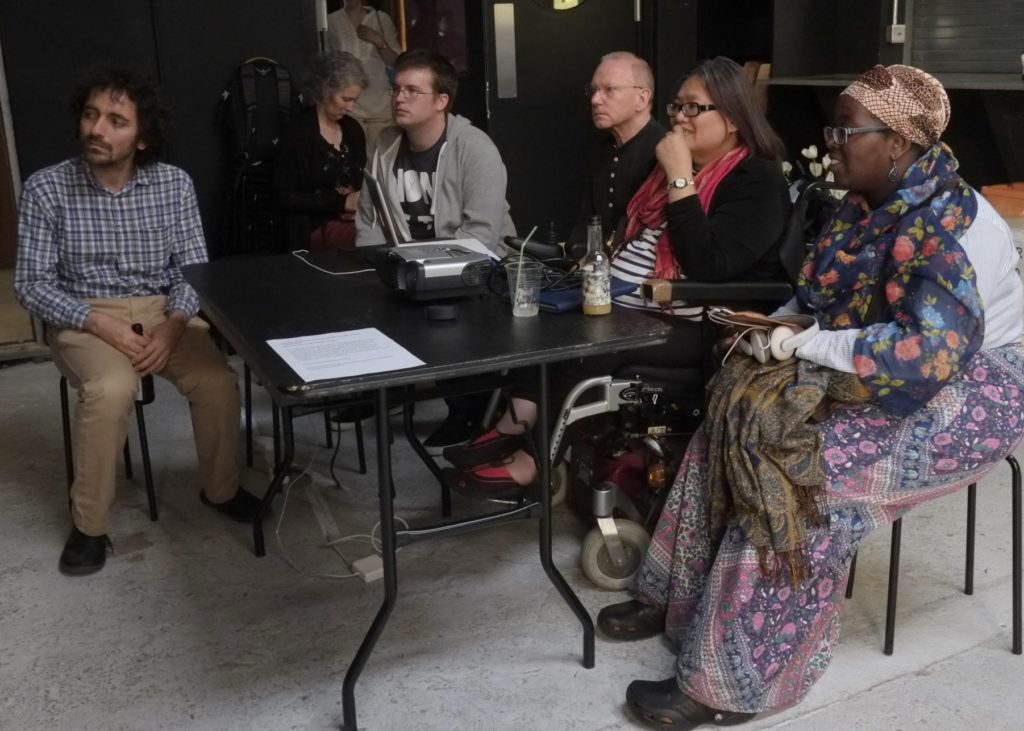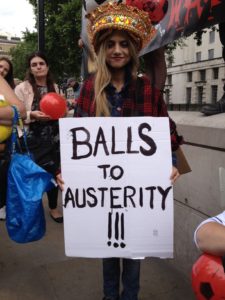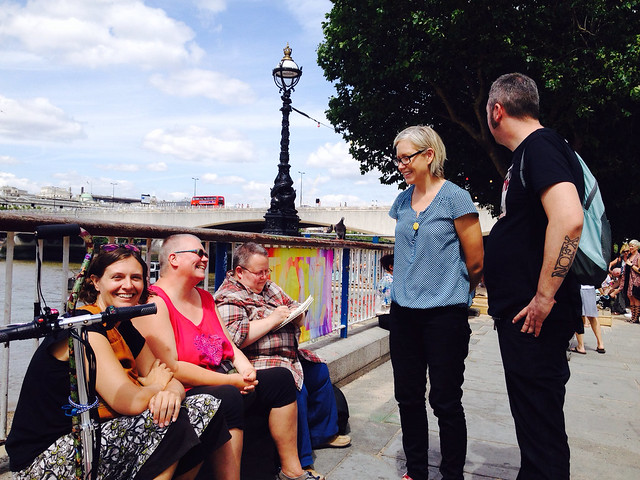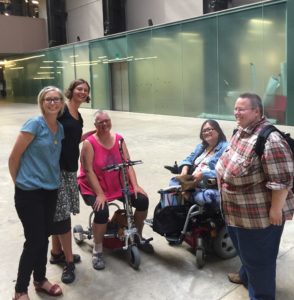this is part of a set of blogs in preparation for a chapter in a journal which asked me to write ” on your work in relation to your personal activism and advocacy with the onset of austerity, and the intersectional tensions as a disabled women involved with a diverse set of communities. In particular we thought you may want to contribute a chapter about your personal reflections, that rigorously capture the new and emerging issues for disability activism” …..
I’ll admit I scratched my head when I was wondering how to write about ‘feminism’ and its role in my life. Lani Parker asked me if I was a feminist in her podcast
Lani: We’ve talked about intersectionality a bit and identity politics, and moving towards the movement stuff. I was wondering, and we talked about bringing in women’s issues and race issues. I was wondering, what does feminism mean to you? Because you’re a very strong feminist.
Eleanor: Thank you. I’m not sure I’m a strong anything. I’ve not really studied feminism as a theory or gone to any feminism classes or courses, or anything like that really. I think for me, feminism is being able to do what you want to do when. Your gender shouldn’t limit your opportunities. Having said that, I realise that it’s not, even if you think you’re a feminist, there are a lot of things in this world that put a stop to your choice, because it’s just easier to conform. I know I got married quite young, and if I was a feminist, if I wasn’t a disabled person, I think, thinking back, I might not have got married at that age. And I think I got married then because I had this internalised idea of myself as not being worthy. And I think that if I didn’t marry the first person who asked me, I might never get another chance. Whereas I don’t think that I would think that if I was a non-disabled woman? So that’s why I’m saying that your choices are compromised, and that’s the intersections they’re kind of in.
I think back of the influences from my own background. My mother is a strong woman, she travelled on her own and escaped from the countryside to go to the city to study during the Communist takeover in Quangzhou. She supported my father in his business and was a businesswoman in her own right. But she stayed well in the family.
My first understanding of the misogyny and patriachal society is from church. One of my mentors, Mrs M committed suicide because of domestic violence and her deep unhappiness also from the fact that her Indian community gave her no support. Of course I have imbibed enough Chinese and Indian films to know how chances are stacked against women. Although I have to add that that Chinese kungfu movies (of which I am a huge fan) have always had strong women warriors and fighters.
Its nothing like the experience of despair and inexplicable resignation of a community when it unfolded in front of me as in the death of a respected member of the community. Everybody seemed to be resigned to it – nobody could/would help her. I raged – I did not understand why she didn’t have choices. I did not understand the patriarchal rules they adhered to. Nobody was denying he abused her. Even sadder was that her sister was given in marriage to help raise the four children she left behind.
I think it was that and another near suicide of another close Indian friend – also through domestic violence that I stopped believing in romance. It simply did not exist in my community. Women got married. They had children. Some men (friend’s fathers) had more than one wife. Even the school secretary but they are not mistresses, they are concubines, unless they are Muslims, then they are wives. We did not question it, it was part of life as we knew it. There was no judgemental bullying of the offspring of such alliances either.
But I got married at a young age myself. I think whatever I felt, I wanted to belong to the idea of the ‘feminine mystique’ . It is still a patriarchal society and as a disabled woman, I longed to belong as with a ‘normal’ ‘rites of passage’ as a woman. And I became a wife and a mother without ever questioning myself.
It was only after the birth of my second child, I decided I should also think of having jobs but soon we moved to Strasbourg (the opportunities for partner and children came before considerations for my own career.) I should say I was enjoying joining other women’s groups and disabled people groups in London at the time, so it was not an easy choice personally.
The logistics of making a new home, grappling with children’s routines, getting to grips with a different culture and language took all my energy and space at the time. I enjoyed expatriate life, made new friends and a new semi diplomatic status. But it had its own toll on me. I felt isolated and without access to my own circle of friends (since I didn’t work) and intellectual stimulation.
I started on a Masters in English Literature with the OU. This where I started researching and thinking about feminism looking at women revolutionaries in the 1790’s, such as Eleanor Ty’s Unsex’d Revolutionaries: Five women Novelists in the 1790’s
So my journey to feminism is not through the suffragettes or learning about them. It was from the voices of Mary Wollstonecraft and Mary Hays. I started noticing the absence of women’s work. I had collaborated and presented papers in Museum conferences about gender issues.



